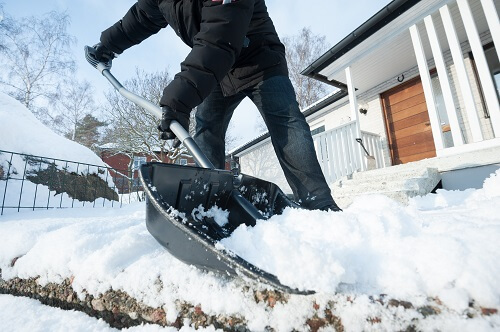
Follow me on Twitter @drClaire
The holidays can be hectic — and tense. Between buying presents (expensive and nerve-racking), holiday events (how many holiday concerts can there be?), entertaining (so much cooking), traveling, and family gatherings (which are not always as pleasant as we might like), what should theoretically be fun has a way of becoming stressful. It can be stressful for kids, too.
Okay, they aren’t driving long distances, dealing with office parties, or managing a credit card bill. But it is stressful nonetheless. Routines are off, there are so many expectations, and the ambient stress has a way of affecting children too.
Here are seven ways to prevent and reduce holiday stress for children this season.
1. Manage your own stress. Not only are you setting an example, there’s just no way to stop your children from sensing your stress and being affected by it. It’s kind of like the safety message we hear every time we get on an airplane: if you are flying with a child and the oxygen masks drop, you should put yours on first and then put on the child’s. You’re no good to anyone if you can’t function. Try to be self-aware. Set aside time for yourself. Create code words that your partner and friends can use to let you know when you are starting to act like a snippy, crazy person. Practice self-care. Get enough sleep. Speaking of sleep…
2. As much as possible, keep routines the same. Kids do best when routines are predictable — and healthy. This is particularly true for sleep. As tempting as it may be to let kids stay up late and sleep late throughout the holidays, try to stay within an hour of usual times, except for special occasions (like New Year’s Eve). We all do better when we stick to our sleep routines. Same goes for mealtimes (be sure your kids get three healthy meals a day, preferably with you and not in front of the television). As you think about how your children will spend the holidays…
3. Manage expectations. My youngest child has a way of getting incredibly excited for Christmas, expecting that he will get that incredibly expensive and hard-to-find Lego set, and that we will spend every day of vacation visiting museums and doing other activities, preferably with his friends — and then getting sad when he gets something slightly different and has to amuse himself some days. This is true for lots of kids, and is very preventable. Up front, let kids know what they can and can’t expect. You don’t have to give away the surprise, but you could, as a family, say that everyone gets one big but not break-the-bank gift (and otherwise set parameters on gifts). And you can sit together, look at the calendar, and let your kids know what you can and cannot pull off when it comes to vacation activities. As you think about activities…
4. Keep kids active. Speaking of television, sitting in front of it (or a gaming console or an iPad or phone) all day isn’t good for anyone, and exercise is a known stress-buster. Kick them outside. Go to the park. Take advantage of free swim time at the local Y. Go for walks together. That together part is key…
5. Spend some time together. Real time, where you are sharing an activity. Going to the movies or having a family movie night is fine (and a nice way to end a crazy day), but try to do things that involve actual interaction. Play games together. Visit a museum together. Bake cookies. Which is a good example of how you can…
6. Build some family holiday rituals, if you don’t have them already. Whether it’s holiday baking, or making homemade gifts together, or a particular concert you always attend, or some friends you invite every year, create things you can do together every year that are meaningful and fun. There are plenty of things you have to do. Make your family rituals things you want to do. And as you build your rituals…
7. Choose something to do as a family that helps others. Choose toys for a toy drive. Go through clothes in the closet and bring gently used ones to a shelter or clothing drive. Donating money to causes is always great, but look for things that your children can actively participate in, preferably that you can do as a family. Try not to think of it as another family chore. Instead, think of it as a way to not only teach kindness, but to keep perspective on the holidays — and on what’s way more important than presents or parties.
That’s a perspective we all need — and the perspective that could save all of us a lot of stress.





